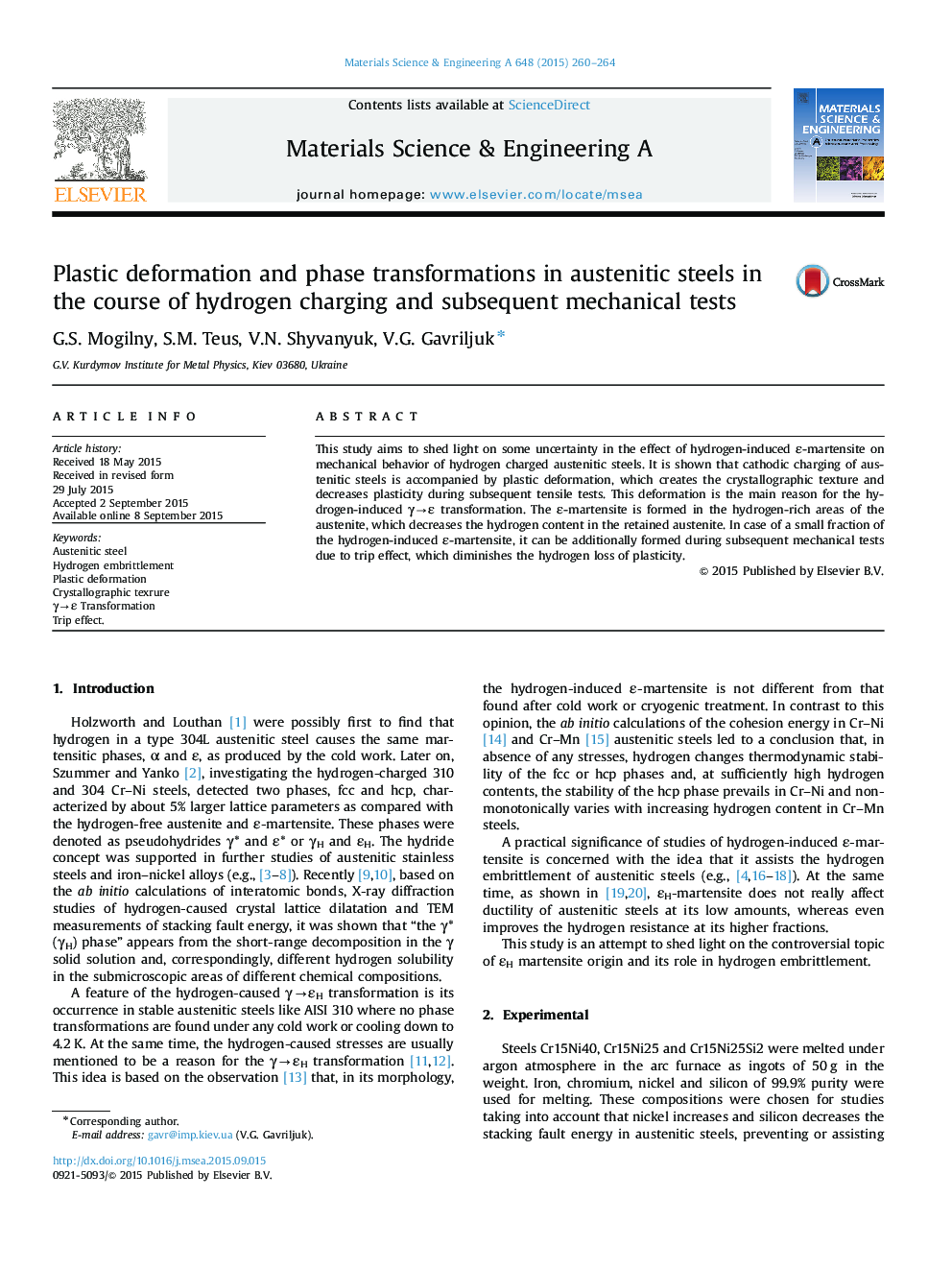| Article ID | Journal | Published Year | Pages | File Type |
|---|---|---|---|---|
| 1573918 | Materials Science and Engineering: A | 2015 | 5 Pages |
Abstract
This study aims to shed light on some uncertainty in the effect of hydrogen-induced ε-martensite on mechanical behavior of hydrogen charged austenitic steels. It is shown that cathodic charging of austenitic steels is accompanied by plastic deformation, which creates the crystallographic texture and decreases plasticity during subsequent tensile tests. This deformation is the main reason for the hydrogen-induced γâε transformation. The ε-martensite is formed in the hydrogen-rich areas of the austenite, which decreases the hydrogen content in the retained austenite. In case of a small fraction of the hydrogen-induced ε-martensite, it can be additionally formed during subsequent mechanical tests due to trip effect, which diminishes the hydrogen loss of plasticity.
Related Topics
Physical Sciences and Engineering
Materials Science
Materials Science (General)
Authors
G.S. Mogilny, S.M. Teus, V.N. Shyvanyuk, V.G. Gavriljuk,
